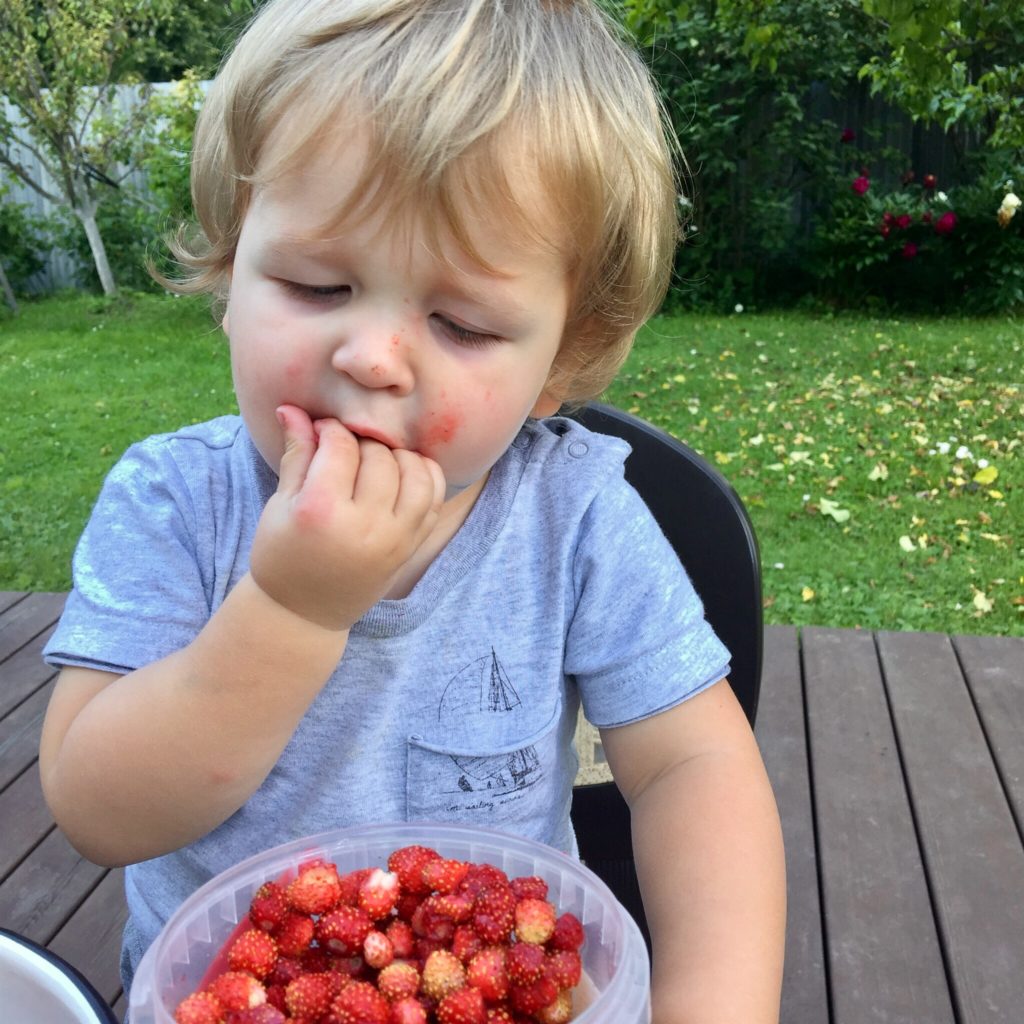When you become a mom, you literally start to perceive everything through the prism of this status. Even from a trip to a detox clinic - not a baby clinic at all - you learn a few lessons that are good for the health of children. Many of my friends and blog readers are looking for a way to teach their child to eat healthy. And if there are several children in the family, the problem becomes even more acute, because they can have completely different cravings. My sons are a prime example, although I raise and try to feed them equally. The older one can happily live solely on bread and pasta. The younger one eats practically the same way as me: he eats a variety of mostly vegetable foods, he is ready to try new things, likes bright flavors (ginger, green onions, lemon, garlic, and so on).
In general, there are no universal rules to instill in children a taste for healthy foods, just as there is no single formula for a healthy diet: some avoid meat, others avoid cereals, still others avoid dairy products, and there is no point in arguing about the pros and cons of this or that diet.

but fortunately, there are indisputable statements that are true for children's diets as well. so let's focus on these axioms:
here they ar
more whole, natural food
fewer industrially processed foods with unsafe additives (including sweeteners, colorings, flavorings, preservatives)
maximum quality of available products (for example, if it is meat, milk or eggs, then from proven farms, if vegetables and herbs, then from your own / grandmother's garden or again from proven suppliers)
as varied a diet as possible - to get the widest possible range of nutrients.

Let me add to these rules the recommendations learned at the aforementioned Austrian detox clinic Viva Mayr:
Teach children to chew their food thoroughly. Often children swallow food on the go or over cartoons without realizing what they are eating. However, chewing each bite (or spoonful) 30-40 times is very important! First, saliva during chewing sends information to the stomach about what food to expect and what digestive enzymes are needed to process it. Second, chewing food thoroughly relieves the gut of unnecessary stress and improves the quality of digestion. Third, if you eat slowly, the risk of overeating decreases dramatically, which means that your child will eat exactly the amount he or she needs to be full.
Give preference to alkaline foods. Many diseases thrive on an acid-alkaline imbalance, in an acidic environment, and it is created by the most common components of children's diets - all animal products (including dairy and meat), sweets (including juices and baked goods), industrially processed foods. A diet formed from oxidizing and alkalizing foods in a ratio of 1:2 is the best for health. The conclusion is simple: give children as many plants as possible. This can be salads made from raw vegetables, vegetable soups purees, side dishes of root vegetables (just not potatoes). For lots of ideas on how to feed your child plants, check out my Live up! recipe app in the kids' recipe category: https://live-up.co/app/.
Don't think of fruit as dessert (that is, something to eat after the main meal) and don't give your kids fruit with other foods. Otherwise they begin to ferment and create an acidic environment in the intestines, increasing the risk of inflammation. Think of the fruit as a separate, independent dish, which is best digested in the first half of the day.
The main thing is to teach children the right attitude toward food as something important and worthy of attention. My boys really missed me while I was at the clinic for 10 days, and my oldest asked in tears, "Why did you go on that detox, Mom?" I was glad that my answer satisfied him: "To heal and restore the health of my tummy, not to be sick and to live a very, very long life."
Some may call me obsessed with food and its quality, but I am sure: what and how we eat is the key to our health and longevity. Moreover, it determines the quality of our life: how we feel every day, whether we have enough energy to not just walk through life, but to work, study, play with our children and do it with a feeling of happiness. So I consider it my primary task and daily job to provide my children with the highest quality nutrition possible, to form the right habits for them. And this is quite difficult in today's world, where candy, coke and muffins are popping out at the kids from almost every corner. My sons have been learning since they were in diapers: there is a direct link between what they eat and how they feel. Right now, the older one is jumping to conclusions faster than I am: he has a tummy ache - "apparently, I ate a lot of junk food today. And most importantly, the carrot they hate should be eaten not because my mom makes me, but because I don't want to get sick.



You must be logged in to post a comment.